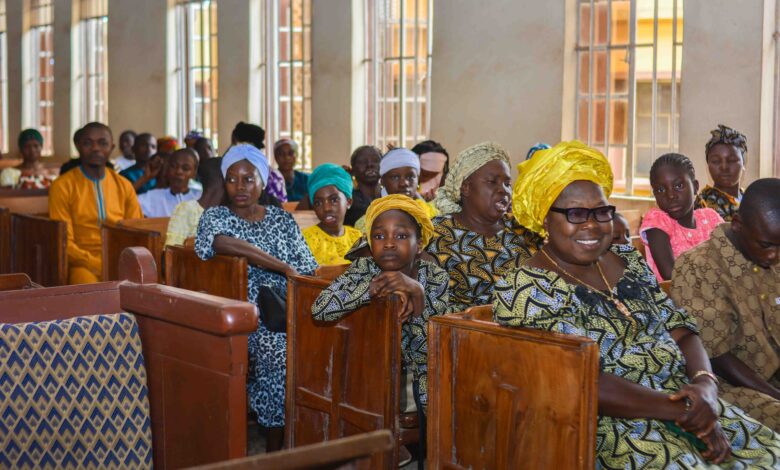The Role of Christianity in Curbing Misinformation

BY: Oluwaseye Ogunsanya
In today’s fast-paced, digitally connected world, there is no gainsaying that misinformation has become a global challenge. It creates confusion, erodes trust in institutions, and divides communities. As a Christian, I believe that the Christian faith offers timeless values rooted in truth, justice, and love, which can help curb the spread of misinformation. These values encourage us, as believers, to seek, share, and defend the truth.
The Bible teaches us about honesty and integrity, emphasising the importance of truthfulness and rejecting falsehood. In fact, truth is a foundational element of our faith. Jesus declared in John 14:6, “I am the way, the truth, and the life.” Exodus 20:16 also commands, “You shall not give false testimony against your neighbour.” Moreover, Proverbs 12:22 reminds us that, “The Lord detests lying lips, but he delights in people who are trustworthy.”
Truth is not just a moral option for Christians; it is a divine expectation. As followers of Christ, we are called to uphold truth in every aspect of our lives, including the information we share. Misinformation and other forms of falsehood which distorts reality, directly contradicts this calling.
Our Responsibility to Combat Falsehood
In an era where misinformation can be shared with just a click, we are called to be “salt and light” in the world (Matthew 5:13-16), meaning that we should positively influence society with truth, justice, and righteousness. Love, central to our faith, is also crucial here. We are commanded to love our neighbours as ourselves (Matthew 22:39). This love extends to the way we share information. Spreading misinformation causes harm, fear, and division, which directly violates this commandment.
Similarly, the bible teaches us to exercise discernment. Meaning that we are to fact-check information before sharing it and avoiding gossip, slander, or unverified claims. This call to accountability and stewardship over our words both spoken and written reminds us that truth is sacred and should be protected. When we adhere to these tenets, we actively resist the spread of falsehood and contribute to a culture of truth.
The Role of the Church and Christian Media as Guardians of Truth
As the “pillar and foundation of the truth” (1 Timothy 3:15), the church has a pivotal role to play in equipping believers to combat misinformation. Churches have the responsibility to teach their congregants about the importance of truth and the dangers of spreading fake news. They must also encourage critical evaluation of information, as 1 Thessalonians 5:21 advises, “Test everything. Hold on to what is good.”
Churches can partner with the media, civil society organisations, and fact-checking groups to provide resources that help members differentiate between credible news sources and misinformation. Hosting workshops on media literacy, fact-checking, and responsible information sharing can further equip members to navigate today’s complex information landscape. It’s worth mentioning that FactCheckAfrica, an organisation I’m familiar with, has been working in this space, reaching out to churches and communities in Ekiti State.
Faith-based organisations can also create fact-checking platforms or collaborate with existing ones to provide tools that help Christian communities verify information. Christian media outlets and organisations play a significant role in this as well. With their wide reach, they can set a high standard of integrity by modelling ethical journalism, focusing on truthful reporting, and engaging in thorough fact-checking. This shows that it is possible to balance faith and fact in reporting.
When the church encourages a culture of truth, Christian communities can become strongholds against the spread of misinformation and set an example for society at large.
Practical Steps for Christians to Combat Fake News
As Christians, there are several practical steps that can be taken to actively combat fake news:
- Verify Before Sharing: Always fact-check information from reliable sources before forwarding or sharing it with others.
- Educate Yourself and Others: Stay informed about the dangers of misinformation and media manipulation. Learn to identify signs of fake news, such as sensational headlines, lack of credible sources, and emotional language.
- Encourage Accountability: Gently correct misinformation when you encounter it within your networks, ensuring that truth prevails in your community.
- Support Truth-Focused Initiatives: Engage with or support fact-checking organisations, whether faith-based or secular, that promote truth and transparency in media.
To close out, the Bible’s teachings on honesty, integrity, and love compel us, as Christians, to reject misinformation and uphold truth in all our actions. We have a responsibility to reflect the light of Christ by sharing truth in our words, actions, and the information we spread. In doing so, we not only protect the integrity of the gospel but also help to heal a world fractured by falsehoods.
By embracing our biblical responsibility to be guardians of truth, we contribute to building a society founded on trust, justice, and love.
edited by Habeeb Adisa



